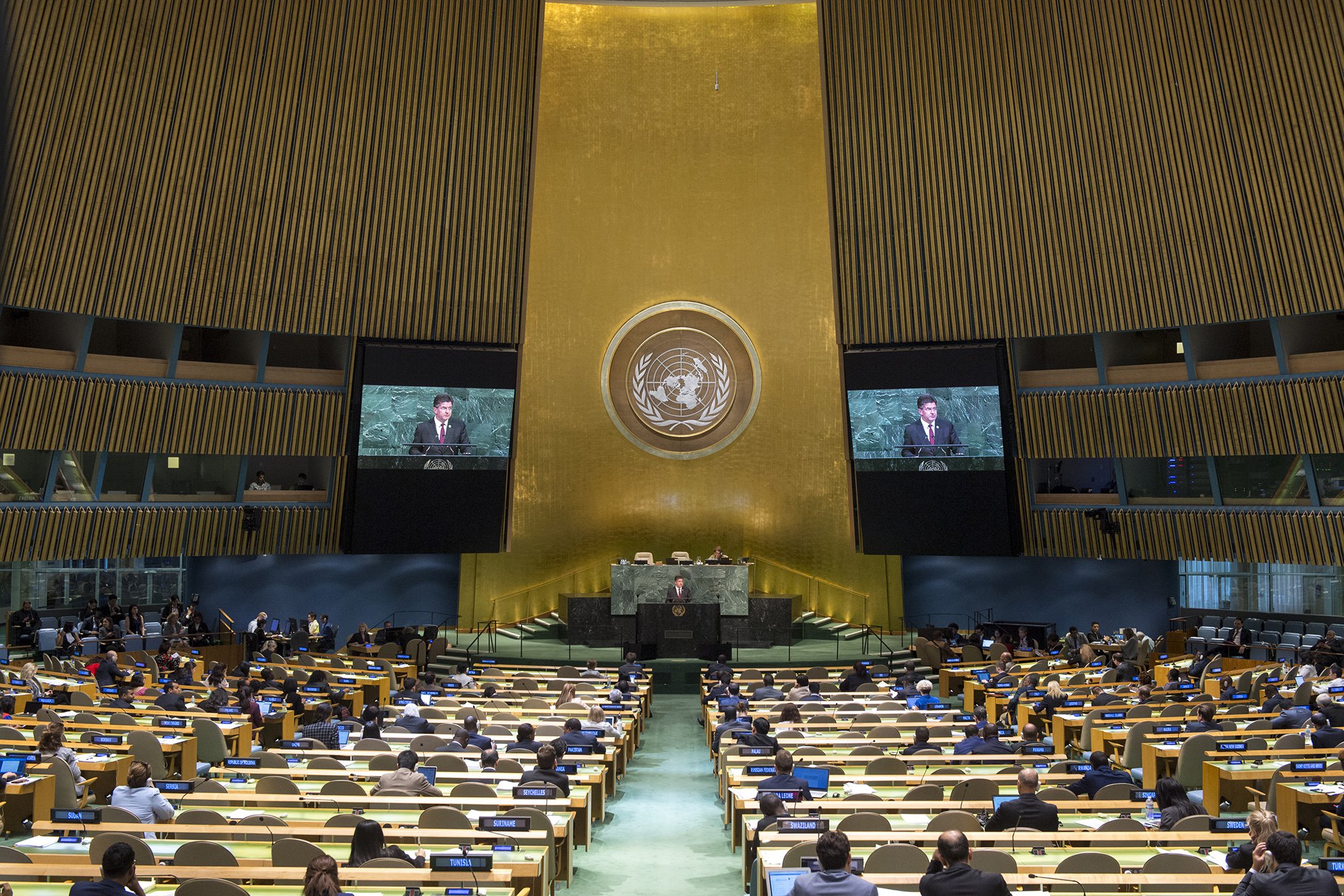Next week, the President of the UN General Assembly (UNGA) will convene a high-level meeting on the UN’s work on sustaining peace. As conflicts surge across the world, causing widespread suffering for millions of people, this is a crucial opportunity to drive this ambitious agenda forward.
Efforts so far have not inspired confidence. Delivering on ‘sustaining peace’ has been an uphill task, largely due to a lack of visible leadership across the UN system; weak partnerships between the UN’s many bodies and with critical players beyond the UN system; inadequate support from Member States; and administrative barriers that are holding back progress.
The UN Secretary-General’s assertive leadership on this agenda will not on its own be enough. Tackling and preventing major crises calls for clear and concerted leadership and action from across the constituent parts of the UN system. In the spirit of the President’s call to ‘focus more on what we can do and what we are not doing’, here are four areas for action by the UN system and member states that should be considered at next week’s meeting.
- Empower credible and accountable leaders to act
The Secretary-General’s ambitious vision for sustaining peace is essential to garnering engagement, but support among the leaders of the UN’s Agencies, Funds and Programmes (AFPs) has been patchy. The review of AFPs’ capacities to sustain peace carried out by ODI last year showed that there is a general need for AFP leadership to articulate more authoritatively their respective institutions’ responsibility in relation to the sustaining peace agenda.
The Secretary-General must ensure that credible, high-quality and accountable leaders are in place at all levels to steer the practical implementation of the sustaining peace agenda. Realising the Secretary-General’s vision will require a great deal of silo-busting among AFPs, led by the new team of Under-Secretaries-General and backed by the full support of Member States. Resident Coordinators will be central to delivering on this agenda where it matters most – at country level. But they can only do so if they are given the authority, the capacity and the requisite resources to act.
- Foster a culture of collaboration
Partnerships between the AFPs and other parts of the UN, as well as other international or national actors, must be at the heart of the sustaining peace agenda. But respective capacities are under-appreciated and opportunities for collaboration are being missed – especially between AFPs and the Secretariat’s departments of Peacekeeping Operations and Political Affairs.
At country level, the commitment of AFPs to sustaining peace must be aligned with the priorities of citizens. This will mean supporting those working for change and those most directly affected by conflict and violence. Here again, the record is uneven. In Lebanon, for example, civil society organisations feel that some AFPs were using them purely as implementing partners and failing to take advantage of their contextual and technical knowledge. But in Colombia, despite some challenges, UN engagement with sub-national government has been a key feature of its support for the peace process.
- Provide more flexible funding and make smarter use of existing resources
Delivering on sustaining peace doesn’t necessarily need more money, but it does need more flexible money and smarter use of available resources, including human. Continued provision of short-term, fragmented, unpredictable and earmarked funding means that AFPs cannot prioritise and invest in the long-term strategic objectives of sustaining peace. Common funds can enable more responsive and strategic programming and provide incentives for increased collaboration, as evidenced in the Multi-Donor Trust Fund in Colombia and the Peace Building Funds in Liberia and Kyrgyzstan. And more predictable multi-year funding will enable AFPs and other entities to programme against long-term objectives, including supporting the capacities of local and national actors to sustain peace.
To access more flexible funding, the UN system must overhaul its internal processes and share funds and resources more effectively. Significant expertise exists within AFPs and across the wider UN system, but remains largely siloed. Greater sharing of skills, staff and learning could help deliver more effective programmes and bring greater efficiencies – thereby instilling greater confidence among Member States.
- Take the diplomatic action necessary to halt conflict and support states in the search for peace
There is a desperate need for Member States to take the necessary diplomatic action to stop crises from escalating, bring parties back from the brink of violence and set them on the path to peace. In doing so, Member States will also provide the political space for the UN system to deliver the peace, security, development and human rights objectives it has been set by these same states. Priority should be given to investment in the UN’s good offices and mediation capacities.
It is crucial that UN leaders at HQ and country level get behind the Secretary-General's vision at next week’s meeting. For the UN to be a catalyst for peace, its leadership must act now to reform the system’s culture, structure and processes, while Member States need to deliver on their own commitments as the guarantors of international peace and security.

